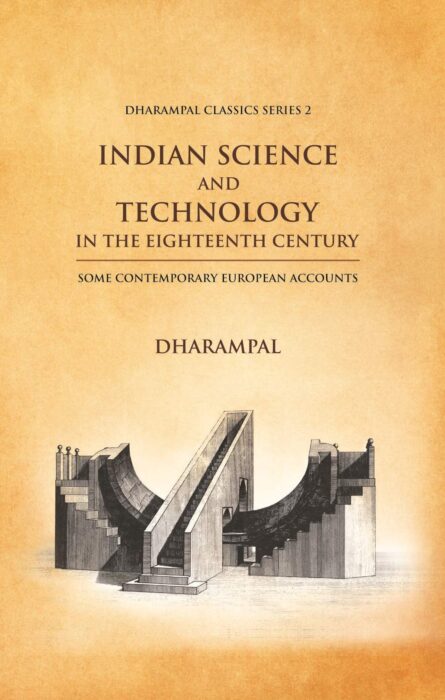
Dharampal
Did you know that the art of plastic surgery was first tried out and perfected in India? That in the eighteenth century, samples of Indian steel manufactured by Indian ironsmith and imported into England were found to be superior in quality to steel from Sheffield? That small-pox inoculation was practised in certain regions of the country much before Edward Jenner introduced vaccination? That India used the drill plough centuries before it was introduced into Europe?
Dharampal's Indian Science and Technology in the Eighteenth Century is the first real modern classic to bring to light the science and technology traditions prevailing in India prior to the arrival of her destructive colonisers. The Book is based on fascinating accounts of various technical processes and practices written by Englishmen and other Europeans in the period when they came to India to learn and before they opted to rule. Besides plastic surgery and inoculation techniques, the book also has accounts on the manufacture of ice and paper; irrigation and agriculture; and some aspects of science including algebra, geometry and astronomy, the last reflected in the establishment of impressive observatories.
The effect of ht book has been to compel historians to radically revise their opinion of the technical capabilities and scientific output of Indian society.
Indian Science and Technology in the Eighteenth Century is the first in the series of five volumes of the Collected Writings of Dharampal
Dharampal was born in 1922 at Kandhala in the Muzaffarnagar district of Uttar Pradesh. He has been associated in various ways with the regeneration of India’s diverse populations and the restoration of their decentralized social, political and economic organization centered on local communities.
Dharampal served as a member of the Indian Council of Historical Research for two terms in the early 1990s and again for a term recently. He was also the Chairman of the Commission on the Protection of the Cow set up by the Government of India in 2001. From the mid 1980s Dharampal was closely associated with Mahatma Gandhi’s Sevagram Ashram, Wardha (Maharashtra) which he considered his main abode until he passed away there on 24th October 2006. He is survived by his brothers, Yogendra Pal and Yash Pal, his sister, Sushila, and his children, Pradeep, Gita and Anjali. His elder daughter, Gita Dharampal-Frick is a professor of history at the South Asian Institute, University of Heidelberg, Germany.